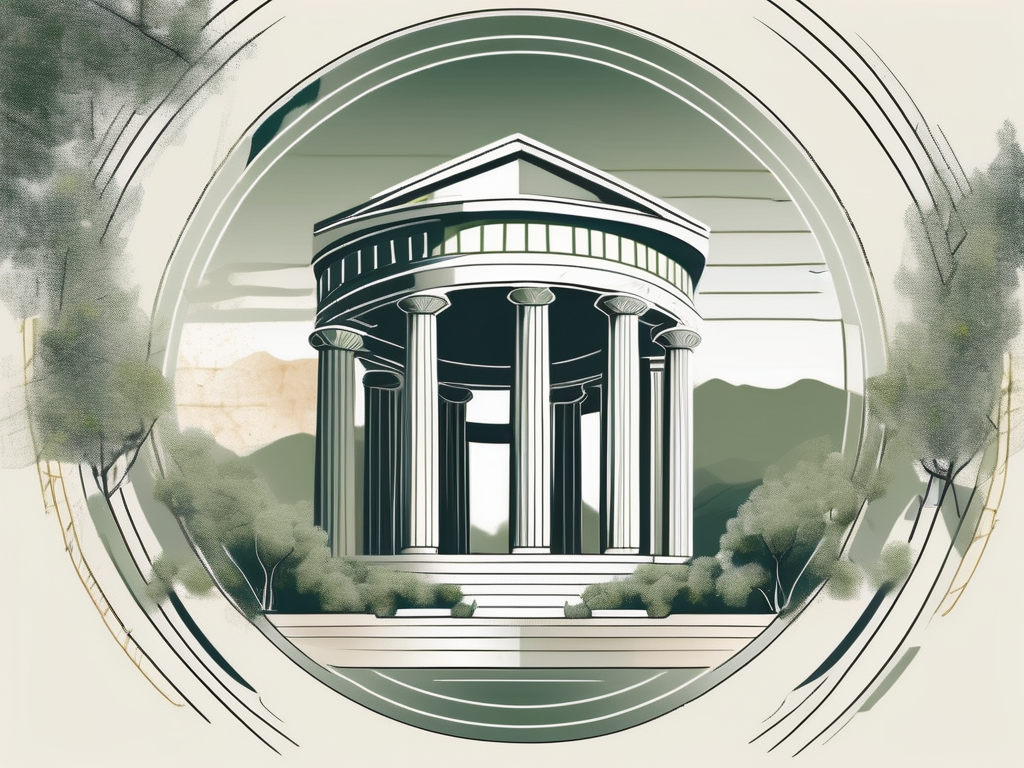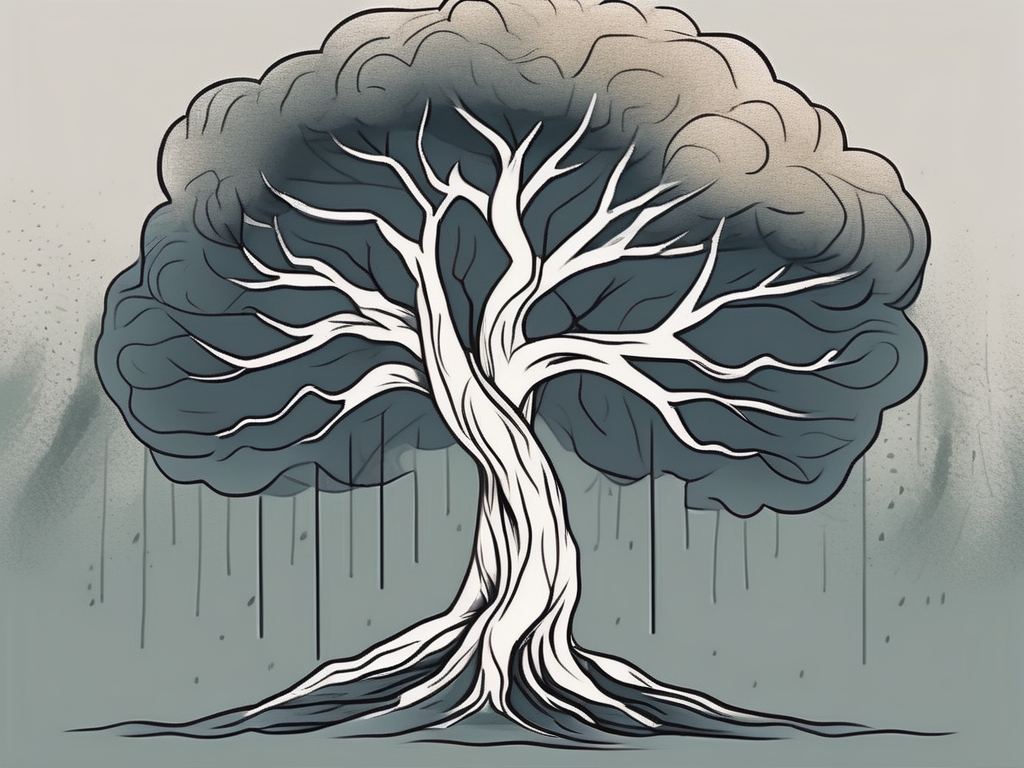Stoicism is a philosophy that has endured for centuries, offering valuable insights into how to navigate life’s challenges with grace and fortitude. In this guide, we will explore the essential traits of Stoicism and how they can help us cultivate resilience and inner strength in the face of adversity. From understanding the origins of Stoicism to practical applications in everyday life, let’s dive into the fascinating world of this ancient philosophy.
Understanding Stoicism: A Brief Overview
Stoicism originated in ancient Greece, with its foundations laid by philosophers like Zeno of Citium in the early 3rd century BC. The philosophy gained popularity across the Roman Empire and produced renowned thinkers such as Seneca, Epictetus, and Marcus Aurelius. At its core, Stoicism focuses on cultivating virtues and accepting the things that are beyond our control.
Stoicism, with its profound influence on Western philosophy, has a rich and fascinating history that spans centuries. Let’s delve deeper into the origins of Stoicism and explore the key philosophers who shaped this enduring philosophy.
The Origins of Stoicism
Stoicism can be traced back to Zeno of Citium, a Greek philosopher who taught his students in a painted colonnade called the Stoa Poikile, from which the philosophy derives its name. Zeno’s teachings emphasized the importance of living in accordance with nature and developing wisdom, courage, justice, and moderation as virtues.
The Stoa Poikile, a place where Zeno and his followers gathered, became a vibrant hub of philosophical discussions and debates. It was here that Stoicism began to take shape, as Zeno’s teachings resonated with those seeking guidance on how to lead a virtuous and meaningful life.
Over time, Stoicism evolved and expanded its reach beyond Greece, finding a receptive audience among the Romans. The Stoic philosophy offered a practical framework for navigating the complexities of life, and its popularity soared during the Roman Empire.
Key Philosophers of Stoicism
Stoicism flourished during the Roman Empire, and its teachings were expanded upon by influential philosophers like Seneca, a statesman and playwright, Epictetus, a former slave turned philosopher, and Marcus Aurelius, the Roman Emperor. These thinkers explored Stoic principles in depth and provided invaluable insights into its practical application in daily life.
Seneca, known for his eloquent writings and profound wisdom, was a prominent Stoic philosopher who emphasized the importance of self-control, virtue, and the pursuit of inner peace. His works, including “Letters from a Stoic,” continue to be widely read and admired for their timeless wisdom.
Epictetus, who endured a life of hardship and adversity, emerged as a powerful advocate for Stoicism. His teachings focused on the power of the mind and the importance of accepting what is beyond our control. Epictetus believed that true freedom lies in our ability to control our thoughts and attitudes, rather than external circumstances.
Marcus Aurelius, the Roman Emperor, is often regarded as the epitome of a Stoic philosopher-king. His personal reflections, compiled in his book “Meditations,” provide a glimpse into his inner struggles and his unwavering commitment to Stoic principles. Marcus Aurelius reminds us of the importance of virtue, humility, and the acceptance of our mortality.
These key philosophers of Stoicism, along with many others, contributed to the development and dissemination of Stoic ideas. Their writings and teachings continue to inspire individuals seeking guidance on how to navigate the complexities of life and find tranquility amidst the chaos.
In conclusion, Stoicism is a philosophy that has endured the test of time, offering valuable insights into leading a virtuous and fulfilling life. Its origins in ancient Greece, the teachings of philosophers like Zeno of Citium, and the contributions of influential thinkers like Seneca, Epictetus, and Marcus Aurelius have shaped Stoicism into a profound and practical philosophy that continues to resonate with people today.
The Core Principles of Stoicism
At the heart of Stoicism are four cardinal virtues: wisdom, justice, courage, and moderation. These virtues serve as guiding principles for Stoics, allowing them to navigate life’s challenges with grace and integrity.
Stoicism, an ancient Greek philosophy founded by Zeno of Citium in the early 3rd century BC, offers a practical and ethical approach to living a meaningful life. It emphasizes the importance of personal development and self-improvement, aiming to cultivate virtues that lead to a state of tranquility and inner peace.
The Virtue of Wisdom
Wisdom lies at the foundation of Stoic philosophy, as it is through wisdom that we gain a deeper understanding of the world and our place in it. By continuously seeking knowledge and reflecting upon our experiences, we can make wiser choices and act in alignment with our values.
Stoics believe that wisdom is not only acquired through formal education but also through the practice of self-reflection and introspection. By examining our thoughts and actions, we can gain insights into our own character and make necessary adjustments to live a more virtuous life.
The Value of Justice
Justice is another key virtue in Stoicism, emphasizing the importance of fairness and treating others with kindness and respect. By practicing justice in our interactions with others, we contribute to the well-being of society as a whole and foster a sense of harmony.
Stoics believe that justice extends beyond mere legal or societal norms. It involves treating all individuals, regardless of their status or background, with fairness and compassion. By recognizing the inherent worth and dignity of every human being, Stoics strive to create a more just and equitable world.
The Importance of Courage
Courage is an essential trait cultivated by Stoics, as it enables us to face challenges and overcome obstacles with resilience. By developing the strength to confront our fears and embrace discomfort, we can find the courage to pursue our goals and live authentically.
Stoicism teaches that courage is not the absence of fear but rather the ability to act in spite of it. It encourages individuals to embrace discomfort and willingly engage in difficult situations, knowing that growth and personal development often arise from adversity.
The Role of Moderation
Moderation is the virtue that teaches us to find balance in all aspects of life. Stoics believe in avoiding excess and practicing self-control in order to achieve a state of tranquility. By embracing moderation, we can cultivate a sense of calmness and avoid being swept away by the chaos of emotions or material desires.
Stoicism emphasizes the importance of temperance in our actions, thoughts, and desires. It encourages individuals to avoid extremes and find a middle ground that promotes well-being and contentment. By practicing moderation, Stoics seek to free themselves from the burdens of excess and find peace in simplicity.
In conclusion, Stoicism offers a practical and philosophical framework for living a virtuous and meaningful life. By embracing the core principles of wisdom, justice, courage, and moderation, individuals can navigate life’s challenges with grace and integrity. Stoicism teaches us to focus on what is within our control and to cultivate virtues that lead to inner peace and tranquility.
Stoicism and Resilience: An Intrinsic Connection
Stoicism and resilience go hand in hand, as the philosophy offers valuable tools and perspectives to help us navigate adversity and maintain our composure in difficult times.
But what exactly is Stoicism? Stoicism is an ancient Greek philosophy that emphasizes the importance of virtue, reason, and self-control. It teaches us to focus on what is within our control and to accept the things we cannot change. Stoics believe that by embracing the inevitable challenges of life, we can cultivate resilience and lead a more fulfilling existence.
Embracing Adversity
Stoics believe that adversity is an opportunity for growth and self-improvement. By reframing challenges as opportunities to build resilience and learn valuable lessons, Stoics develop the capacity to face life’s hardships with a sense of purpose.
Imagine a Stoic philosopher standing in the midst of a storm. Instead of cowering in fear or frustration, they embrace the storm as an opportunity to test their inner strength. They recognize that the winds and rain are beyond their control, but their response to the storm is within their power. They choose to face the storm with courage and resilience, knowing that it is through adversity that they can grow and become better versions of themselves.
Stoicism teaches us that adversity is not something to be avoided or feared, but rather something to be embraced and used as a stepping stone towards personal growth. By adopting this mindset, we can transform our perspective on challenges and approach them with a sense of purpose and resilience.
Maintaining Composure in Difficult Times
One of the key teachings of Stoicism is the importance of maintaining composure in the face of adversity. By practicing mindfulness and cultivating inner calmness, Stoics are able to keep their emotions in check and make rational decisions even in the most challenging circumstances.
Imagine a Stoic in the midst of a chaotic situation. While others may panic or become overwhelmed, the Stoic remains calm and composed. They understand that their emotions are within their control and that by maintaining a clear and rational mind, they can navigate the situation with wisdom and resilience.
Stoicism teaches us that our emotions are not dictated by external circumstances, but rather by our own thoughts and beliefs. By cultivating mindfulness and self-awareness, we can detach ourselves from the chaos of the outside world and find inner peace and composure.
Ultimately, Stoicism and resilience are intrinsically connected. By embracing adversity and maintaining composure in difficult times, Stoics are able to cultivate resilience and lead a more fulfilling and meaningful life. So, the next time you find yourself facing a challenge, remember the wisdom of the Stoics and embrace it as an opportunity for growth and self-improvement.
Cultivating Inner Strength through Stoicism
Stoicism provides valuable insights and practices to help us cultivate inner strength and develop emotional fortitude in today’s fast-paced and unpredictable world.
Stoicism, an ancient philosophy founded in Athens by Zeno of Citium, offers a comprehensive approach to developing emotional fortitude and mental toughness. Its principles have stood the test of time, resonating with individuals seeking resilience and tranquility in the face of adversity.
Developing Emotional Fortitude
Stoics recognize that emotions can cloud our judgment and hinder our ability to act in our best interests. By practicing emotional detachment and cultivating a sense of equanimity, Stoics develop the inner strength to navigate life’s ups and downs with grace and resilience.
Emotional detachment does not imply suppressing or denying emotions. Instead, Stoics advocate for acknowledging and understanding our emotions while maintaining a rational perspective. This approach allows us to respond to challenging situations with clarity and composure, rather than being swept away by impulsive reactions.
Moreover, Stoicism encourages the cultivation of virtues such as courage, wisdom, and self-discipline. By embodying these virtues, individuals can develop emotional fortitude and face life’s difficulties with a calm and collected demeanor.
Fostering Mental Toughness
Mental toughness is a hallmark of Stoicism, enabling individuals to overcome obstacles and persevere in the pursuit of their goals. By training the mind to focus on what can be controlled and letting go of what is beyond our power, Stoics develop the resilience needed to face life’s challenges head-on.
Stoics emphasize the importance of distinguishing between what is within our control and what is not. They believe that our thoughts, actions, and attitudes are under our control, while external events and other people’s opinions are beyond our influence. By directing our energy towards what we can control, Stoics free themselves from unnecessary worry and frustration.
This focus on internal locus of control empowers individuals to adapt to changing circumstances and find meaning in difficult situations. Stoics believe that by accepting the impermanence of external events and embracing the present moment, we can cultivate a sense of inner peace and resilience.
In addition, Stoicism encourages individuals to practice negative visualization, a technique where one imagines worst-case scenarios. By mentally preparing for adversity, Stoics develop the mental toughness necessary to navigate challenging situations with clarity and determination.
Through the teachings of Stoicism, individuals can develop the inner strength and resilience needed to thrive in today’s fast-paced and unpredictable world. By practicing emotional detachment, cultivating virtues, and fostering mental toughness, Stoics equip themselves with valuable tools for navigating life’s ups and downs with grace and fortitude.
Practical Applications of Stoicism in Everyday Life
Stoicism is not merely a theoretical philosophy; it offers practical guidance on how to live a fulfilling and meaningful life.
Stoicism in Personal Relationships
Stoic principles can be applied to personal relationships, fostering understanding, empathy, and mutual respect. By practicing patience, forgiveness, and gratitude, we can cultivate deeper connections and create harmonious relationships.
Stoicism at Work
Stoicism can also be applied in the workplace, helping individuals navigate office politics, difficult colleagues, and demanding workloads. By focusing on what is within our control, setting realistic expectations, and maintaining a sense of integrity, Stoics can thrive professionally while staying true to their principles.
Stoicism and Personal Growth
Stoicism provides a roadmap for personal growth and self-improvement. By embracing the principles of Stoicism and incorporating its practices into our daily lives, we can develop resilience, inner strength, and a greater sense of purpose and fulfillment.
In conclusion, Stoicism offers valuable insights and tools for cultivating resilience and inner strength. By understanding the core principles of Stoicism, embracing adversity, and applying its teachings in practical ways, we can navigate life’s challenges with grace and fortitude. Stoicism is not only a philosophy but a way of life that can transform our perspective and help us cultivate resilience in an ever-changing world.












